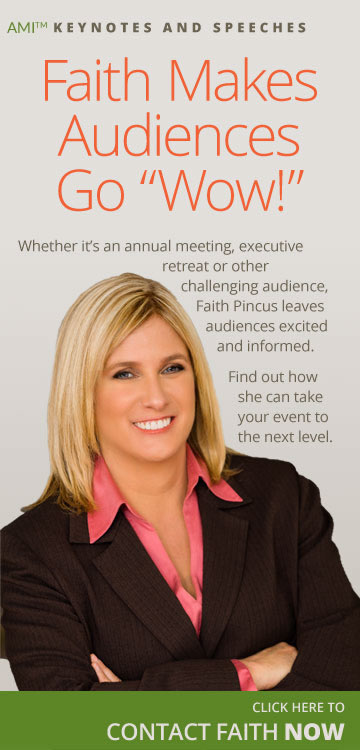Include questions to answer concerns
It goes without saying that a Q&A session occurs at the end of most speeches, unless there are time constrictions. Most speakers welcome a chance to hear how their message went over and clarify any areas of uncertainty. But just as obviously, you don’t usually want that level of audience participation while your speech is going on.
All the same, you may want to consider questions as elements to include in your presentation. These are the ones that you — the speaker — would pose. These might be things where you really do want people to weigh in, for the sake of audience involvement or confirmation. Or else they can be questions that you ask and then answer yourself. It’s a way to address areas where you feel that there are natural thoughts or concerns that arise. If left unanswered, those questions can distract audience members. Think about putting natural contentions in the form of a question, in order to defuse the situation and steer your audience back to your point of view.
The two types of questions
Questions divide into two camps: Rhetorical and real. Rhetorical questions are those asked just for effect, and an answer isn’t expected (e.g. “But who’s counting?”). When using a rhetorical question, be certain to pause and make eye contact with your audience only so long as to make the point and let them think, then move on. If you pause too long, they may begin to wonder if you are expecting a response and they may get uncomfortable.
(A quick aside to legal professionals: Rhetorical questions are effective in most types of presentations, including Opening Statements and Closing Arguments. Be wary of using them in Oral Argument as you risk irritating the judges, who want you to answer their questions, not to be peppered by rhetorical ones from you.)
Real questions are just what they sound like: Questions that either have an answer or open up a line of inquiry. For real questions, it works best if you keep them short, to the point and if you tell your audience how to answer them. You want to give your audience permission to shout it out, write the answer down for later or discuss in a group. Without your prompting them to know that these are questions to be answered, they might assume your question is rhetorical or they might be too embarrassed to answer. Cue them to respond and, generally speaking, they will.
 Did you enjoy this article?
Did you enjoy this article?



